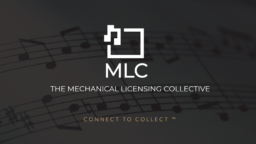The Mechanical Licensing Collective (MLC), established by the Music Modernization Act (MMA) and designated by the US Copyright Office, has submitted its proposal to the Copyright Royalty Board (CRB) outlining the structure of the collective and the funding required to carry out the statutory demands of the bill.
By January 1, 2021, the MLC must be able to administer the new nationwide blanket license system for mechanical rights, operate a transparent database, match copyright ownership to usage on streaming platforms, and pay songwriters and publishers.
This commission-free collective will be funded by the digital services, who will be able to receive blanket licenses through the MLC.
The funding will be made through an “administrative assessment” on the digital services, which the judges at the Copyright Royalty Board are tasked with setting in an amount sufficient to cover the MLC’s total costs.
The MLC’s proposed start-up assessment is $37.25 million, with an annual assessment starting at $29 million in 2021, when it starts its blanket licensing operations.
The law stipulates that the assessment will be wholly paid by the digital services.
The MLC’s submission to the CRB outlines many of the MLC’s funding and staffing plans, which is available publicly and which contains details on the MLC’s proposed organization and operations.
The CRB rules provide for a written response by the digital services, a written reply by the MLC, and then a hearing with live testimony, which is currently scheduled for February 2020. The CRB ruling will be due by July 2020.
“The proposed assessment is the right one under the law, and the budget is very reasonable for digital companies to pay to receive the benefits the blanket license will provide them.”
The Mechanical Licensing Collective
The MLC released the following statement on the proposal: “The CRB submission is the result of months of research on the most efficient and effective way to run this unprecedented new collective that will serve the needs of both the songwriters and their music publishers as well as the digital music services from Day One.
“The proposed start-up assessment is $37.25 million, with an annual assessment starting at $29 million in 2021, when the MLC commences its blanket licensing operations.
“The proposed assessment is the right one under the law, and the budget is very reasonable for digital companies to pay to receive the benefits the blanket license will provide them.
“The MLC’s operating budget and staff must be capable of comprehensively meeting and executing the extensive requirements and responsibilities of the Collective under the law in less than 15 months from now.”
“We have outlined for the Judges what is necessary to achieve these goals and significantly advance the industry, and to fulfill Congress’ mandate to end the status quo where undisclosed millions of dollars owed to music creators are not paid.”
Alisa Coleman, MLC
MLC Board Chairman Alisa Coleman said: “We have a mandate to not just administer the mechanical licensing process, but to improve it, make it more transparent, and to better serve songwriters and publishers of all sizes and around the world.
“We have outlined for the Judges what is necessary to achieve these goals and significantly advance the industry, and to fulfill Congress’ mandate to end the status quo where undisclosed millions of dollars owed to music creators are not paid.
“We are going to continue to work tirelessly in these CRB proceedings to ensure the tech giants who joined with us to pass the MMA continue that partnership to fully fund the most important piece of the legislation, the entity that will actually implement the requirements of the legislation.”Music Business Worldwide




